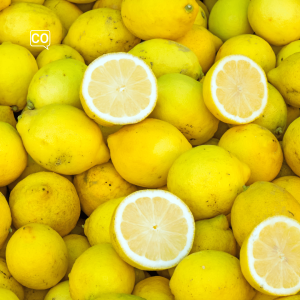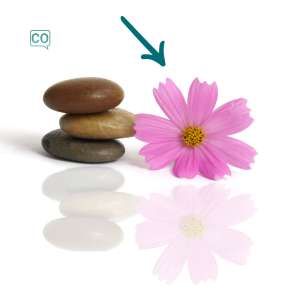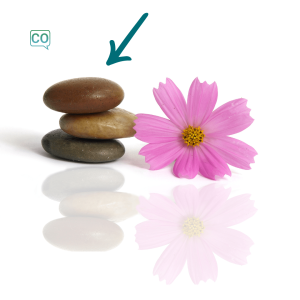Sentidos y percepción

Learning goals:
- Describir gusto, olfato, vista, oído y tacto (Describe taste, smell, sight, sound and touch)
- Comparar cosas (Compare things)
- Los adjetivos comparativos (Comparative Adjectives)
- Cinco sentidos en España (Five senses in Spain)
Learning module 4 (A1): Describir objetos y personas. (Describing objects and people)
Recap exercises of the previous lesson
Teaching guidelines +/- 60 minutes
Core vocabulary (13)

Este limón es muy ácido y me hace sonreír.
(This lemon is very sour and makes me smile.)
Ácido
(Acidic)

El silencio es más tranquilizador que el ruido.
(Silence is more calming than noise.)
El silencio
(The silence)

Nosotros olemos el aroma de la comida familiar.
(We smell the aroma of the family meal.)
Oler
(To smell)
Listening materials
Our listening materials implement the verbs, vocabulary and grammar topics of this lesson. Audio and video available!
A1.26.1 Gramática: Los adjetivos comparativos
Spanish A1.26.1 Comparative Adjectives
(Comparatives are used to compare two or more items in terms of their characteristics.)
Teaching guidelines +/- 15 minutes
A1.26.2 Cultura: Cinco sentidos en España
Spanish A1.26.2 Five senses in Spain
Vive una experiencia única en España con los cinco sentidos.
(Live a unique experience in Spain with the five senses.)
Teaching guidelines +/- 10 minutes
Exercises
These exercises can be done together during conversation lessons or as homework.
Exercise 1: Find the words
Instruction: Find the words, mark them and make sentences with the words.
Show answers Show hintsHints
To smell , The silence , Sweet , Soft , Bitter , The noise
Answers
Score: 0/6
| Dulce | (Sweet) |
| Oler | (To smell) |
| El ruido | (The noise) |
| Suave | (Soft) |
| Amargo | (Bitter) |
| El silencio | (The silence) |
Exercise 2: Reorder sentences
Instruction: The words in these sentences have been shuffled! Sort them so that they make a valid sentence again and translate.
Show answers Show translationExercise 3: Translate and make sentences
Instruction: Translate the words and phrases below and use it in a conversation or text.
Show answersExercise 4: Translate and use in a sentence
Instruction: Translate and say the word out loud. Use the word in a sentence.
Show translation|
1.
El ruido
|
(The noise) |
|
2.
Salado
|
(Salty) |
|
3.
Claro
|
(Clear) |
|
4.
Oír
|
(To hear) |
|
5.
Ácido
|
(Acidic) |
Exercise 5: Conjugación verbal
Instruction: Choose the correct word, read the sentence out loud and translate.
Show answers Show translationOler (Presente, indicativo), Oír (Presente, indicativo)
1. Ellos ... a la profesora.
2. Yo ... la música.
3. Yo ... las flores en el jardín.
4. Él ... algo extraño en la cocina.
5. Ellos ... el mar cuando van a la playa.
Exercise 6: Comparative Adjectives
Instruction: Choose the correct word, read the sentence out loud and translate.
Show answers Show translationmás, tan, menos
1. El plátano es ... duro que la manzana.
2. Después de limpiar, la casa es ... fétida que antes.
3. La noche es ... ruidosa que el día.
4. El café sin azúcar es ... amargo que el café con azúcar.
5. El azúcar es ... dulce como la fruta.
6. La noche es ... oscura que el día.
7. El queso es ... salado que las frutas.
8. La biblioteca es ... silenciosa como la noche.
Exercise 7: Translate and make sentences
Instruction: Translate the words and phrases below and use it in a conversation or text.
Show answersConversation exercise
Teaching guidelines +/- 10 minutes
- Describe los opuestos. (Describe the opposites.)
- Describe el verbo sensorial. (Describe the sensing verb.)
Example phrases:
- Fuerte (imagen cuatro) es lo contrario de silencio (imagen ocho). "Oír". (Loud (picture four) is the opposite of silence (picture eight). "To hear".)
- ...
Appendix 1: Extended vocabulary table
Core vocabulary
(13):
Verbs: 2,
Adjectives: 9,
Nouns: 2,
Context vocabulary:
6
| Spanish | English |
|---|---|
| Amargo | Bitter |
| Claro | Clear |
| Claros | Bright |
| Dulce | Sweet |
| Dulces | Sweet |
| Dura | Hard |
| Duro | Hard |
| El ruido | The noise |
| El silencio | The silence |
| Fétido | Fetid |
| Huelen | They smell |
| Oler | To smell |
| Oscuro | Dark |
| Oír | To hear |
| Salada | Savoury |
| Salado | Salty |
| Suave | Gentle |
| Ver | To see |
| Ácido | Acidic |
Appendix 2: Verb conjugation tables for this lesson
Oler (to smell)
Exercises and examples phrases
- yo huelo I smell
- tú hueles You smell
- él/ella huele he smells
- nosotros/nosotras olemos we smell
- vosotros/vosotras oléis you smell
- ellos/ellas huelen they smell
Oír (to hear)
Exercises and examples phrases
- yo oigo I hear
- tú oyes You hear
- él/ella oye he hears
- nosotros/nosotras oímos We hear
- vosotros/vosotras oís You (all) hear
- ellos/ellas oyen They hear
Exercise: Verb conjugation
Instruction: Choose the correct word, read the sentence out loud and translate.
Show answers Show translationOler (Presente, indicativo), Oír (Presente, indicativo)
1. Ellos ... a la profesora.
2. Yo ... la música.
3. Yo ... las flores en el jardín.
4. Él ... algo extraño en la cocina.
5. Ellos ... el mar cuando van a la playa.











